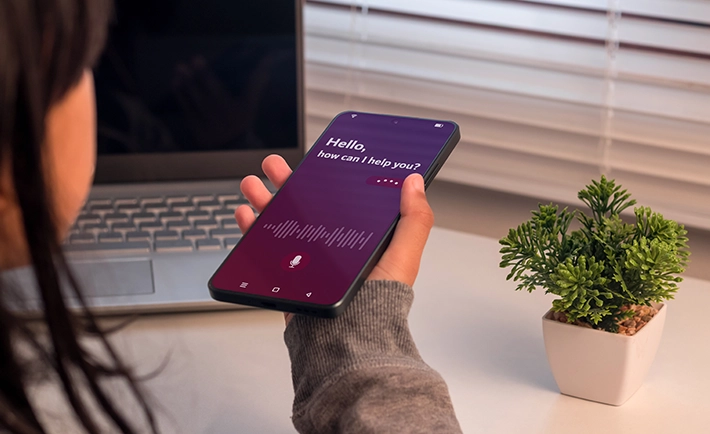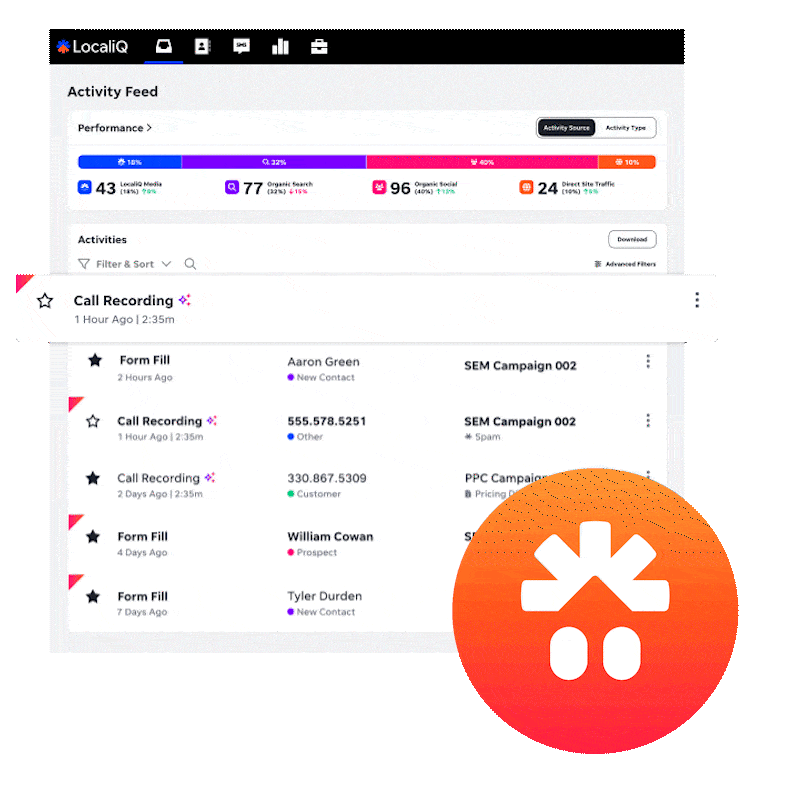Why “Hey Google” Could Change How Customers Find You
If you’ve ever said, “Hey Google, where’s the nearest café?” or asked Siri for directions, you’ve used voice search! And guess what, you’re not alone. Voice assistants like Google Assistant, Alexa and Siri are changing how people search; not by typing, but by talking.
For small businesses, this shift is a big deal. It’s not just about new gadgets — it’s about how customers discover and connect with you online. The good news? With a few smart tweaks, you can make sure your business shows up when someone asks their phone (or smart speaker) for help.
Let’s break down what voice search really means for SEO and how you can use it to your advantage.

What is Voice Search SEO?
Voice Search SEO is about optimising your website so it appears in results when people speak their queries instead of typing them.
Think about how different these two searches sound:
- Typed: “best plumber Sydney cheap”
- Spoken: “Who’s the most affordable plumber near me?”
People speak in full sentences and questions, not short phrases. That means your website’s content needs to match how real people talk, not just how they type.
Why Voice Search Matters in 2025
Voice search isn’t new, but it’s growing rapidly thanks to mobile devices and smart home assistants. According to Google, 27% of the global online population now uses voice search on mobile, and that number continues to rise each year.
In Australia, more than 6 in 10 households now own a smart speaker and users are increasingly relying on voice for everyday tasks — from checking weather and news to finding local businesses.
Here’s what that means for your business: when someone nearby asks their phone for “the closest Thai restaurant open now” or “a local electrician with good reviews,” Google’s answer might come straight from your website or your Google Business Profile.
If you’re not optimised for voice, that means you’re invisible in that moment.

How Voice Search Changes Traditional SEO
Voice search has reshaped the way SEO works. Here’s how:
- Conversational queries:
People use natural language, so websites that include FAQs, question-based headings and clear answers are more likely to appear. - Local intent:
A huge portion of voice searches end with “near me.” Google prioritises businesses with accurate local listings, reviews and up-to-date contact info. - Position Zero:
Voice assistants often pull answers from featured snippets — the quick summaries you see at the top of search results. - Mobile-first experience:
Most voice searches happen on mobile devices. If your site loads slowly or isn’t mobile-friendly, you’ll lose that opportunity.
How to Optimise Your Business for Voice Search
1. Write the way people speak
Use natural, conversational language on your website. Instead of robotic keyword phrases, include full questions and answers.
For example:
“How much does it cost to fix a leaking tap in Sydney?”
That’s the kind of question someone might ask their voice assistant — and the kind of phrase your page should include.
2. Add an FAQ section
FAQs are perfect for voice optimisation. They mirror how people ask questions and help search engines match your answers with spoken queries.
3. Strengthen your local SEO
Make sure your Google Business Profile is complete and accurate address, phone number, hours, services and photos. Add regular posts and Strengthen your local SEO by keeping listings consistent across directories, adding regular posts, and encouraging encourage happy customers to leave reviews.
4. Optimise for featured snippets
Voice assistants love short, direct answers. Use clear headings, bullet points and concise explanations that could be read aloud in a few seconds.
5. Focus on speed and mobile usability
Voice search results prioritise sites that load quickly and perform well on mobile. Run a quick check on Google’s PageSpeed Insights and fix anything slowing your site down.
6. Use schema markup
Schema helps Google understand your business details (like products, prices and reviews). It’s the behind-the-scenes code that improves your chances of showing up in AI and voice-driven search results.

Real Example: How Voice Search Helps Local Businesses
Let’s say you run a local plumbing business in Sydney.
When someone says, “Hey Google, who’s the best plumber near me?” — Google scans for:
- A nearby business with “plumber” listed in its profile
- Positive reviews and consistent contact details
- A mobile-friendly website that clearly answers questions like “How much do plumbers charge in Sydney?”
If you’ve got all that covered, your business could be the one that Google reads out loud.
The Future of Voice Search and AI
Voice and AI search are merging fast. Tools like Google Gemini and ChatGPT are already learning from voice-based queries to deliver smarter, context-rich answers. In 2025 and beyond, these tools won’t replace SEO — they’ll reward websites that sound natural, provide useful answers, and show real expertise.
Small businesses have an advantage here. You’re closer to your customers, you understand what they ask every day, and you can speak their language — literally.
Voice search is changing SEO but not killing it. It’s making it more human.
If your website answers questions clearly, sounds conversational, and gives people what they need — you’ll stay visible whether someone’s typing on a keyboard or talking to their phone.






